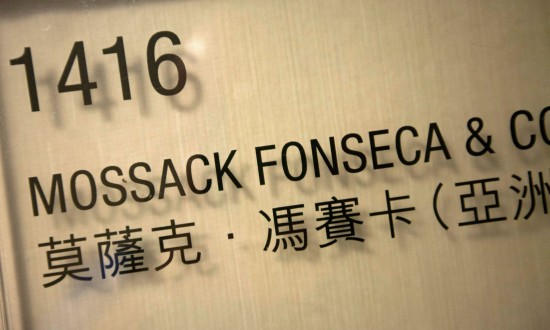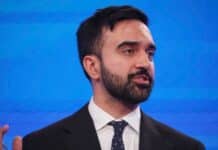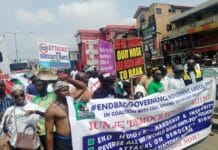Massive clampdown by state media censors fearing Iceland-like revolt
Vincent Kolo, chinaworker.info
No government is doing more to hide the damaging revelations contained in the ‘Panama Papers’ than the Chinese dictatorship. The ‘Panama Papers’ are having a potentially explosive effect around the world, revealing the massive use of tax havens and fake companies (around 200,000 according to the report) by the world’s super-rich to conceal their wealth.
Coming at a time when global inequality has never been more rife – just 62 top capitalists own as much as the poorest half of humanity according to an Oxfam study – the release of the ‘Panama Papers’ is giving the world’s rich and powerful sleepless nights. The report was compiled by a team of campaigning journalists, ICIJ (International Consortium of Investigative Journalists), drawing from a huge dossier of stolen documents from the Mossack Fonseca law firm in Panama.
Particular attention has focused on the 140 political leaders named among this tax-and-publicity-shy global elite, including eight current or former members of the Chinese Politburo Standing Committee, the pinnacle of power within the dictatorship. Other figures outed by the ‘Panama Papers’ include Britain’s right wing and pro-China Prime Minister, David Cameron, whose late father set up a company in Panama for tax evasion purposes. Another politician hit by the scandal is the leader of France’s extreme right National Front (FN), Marine Le Pen. Prominent FN-linked figures including Le Pen’s father are suspected of shifting vast sums abroad for tax evasion purposes knocking a big hole in this party’s ‘patriotic’ image.
The biggest political casualty to date is the Prime Minister of Iceland, Sigmundur Davíð Gunnlaugsson, who was forced to resign yesterday by mass protests outside the country’s parliament. The people of Iceland have suffered years of painful austerity measures since the economy collapsed amid the global banking meltdown of 2008. The revelations that Gunnlaugsson’s family had money stashed away in an offshore haven led popular anger to boil over.
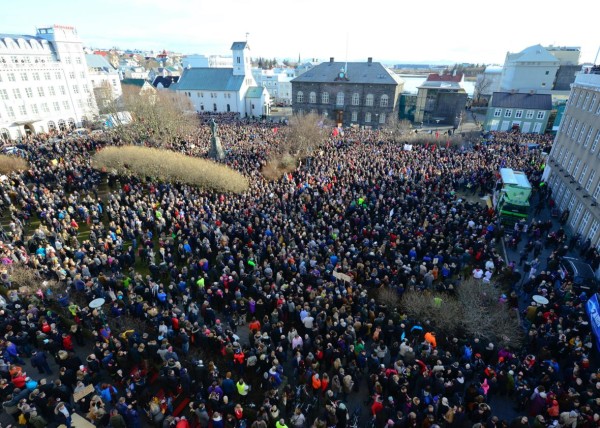
Unprecedented media clamp down
The Chinese regime is going to unprecedented lengths to suppress news of the ‘Panama Papers’ inside the country. The word ‘Panama’ is blocked on internet search engines and strict directives have been sent to all media outlets not to report the issue. “Please act immediately… Find and delete reprinted reports on the Panama Papers. Do not follow up on related content, no exceptions. If material from foreign media attacking China is found on any website, it will be dealt with severely,” reads the order from one provincial internet censorship office, a copy of which was obtained by US-based website China Digital Times.
Typically, what limited mention there has been of the ‘Panama Papers’ in China’s state-controlled media has used anti-Western nationalism to try to discredit the material. Beijing’s notoriously nationalistic Global Times, while admitting that the ‘Panama Papers’ may be genuine, makes the absurd claim that their publication is a US-inspired plot. Not mentioning any connection to China’s leaders, the Global Times instead presents Russian leader Vladimir Putin, one of the most prominent figures to be identified in the ‘Panama Papers’, as a victim of a Western witch-hunt.
This is a classical attempt at misdirection by the Chinese regime. In truth the revelations in the ‘Panama Papers’ are highly damaging to Western capitalism and its political servants, as the graphic example of Iceland shows. After almost a decade of biting austerity and sinking living standards in many Western economies, these documents show the political double standards of governments and the extent to which ruling elites have been shielding their grotesque wealth from public scrutiny. Many of the politicians named are warmongers who dress themselves in the ‘national’ flag to gain public support, while their families have gone to incredible lengths to make sure that the nation’s laws and taxation regimes don’t apply to their own wealth.
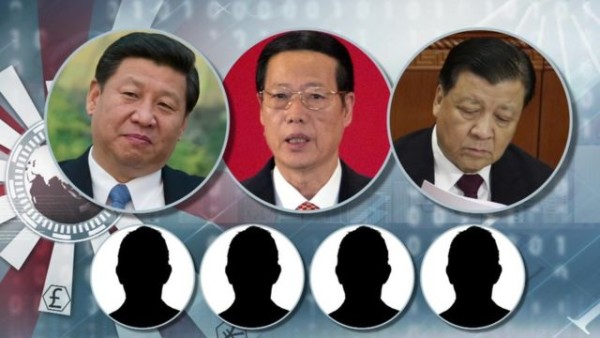
Three of seven Politburo Standing Committee members
This is also the case in China, where President Xi Jinping bases his rule on increasing nationalism and the ‘great rejuvenation of the Chinese nation’ while his brother-in-law Deng Jiagu and sister Qi Qiaoqiao are named in the documents from Mossack Fonseca as having set up two companies in the British Virgin Islands, a tax haven. The revelations about Xi’s family are not new. A Bloomberg investigation in 2012 showed the president’s family owned financial assets worth 376 million US dollars at that time.
In total, the families of three of the seven current Politburo Standing Committee members are identified in the ‘Panama Papers’ as having links to shady offshore companies. In addition to Xi, the others are Liu Yunshan and Zhang Gaoli. Five former Standing Committee members are also named. In the Chinese political system such revelations often feature in internal power struggles with rival cliques trying to heap scandal upon their opponents. This explains why the regime is so desperate to clamp down on all media coverage.
The scale of China’s involvement in this affair is another reason for the unprecedented media blackout. The biggest proportion of offshore companies set up through Mossack Fonseca – 29 percent of the total – originate from China and Hong Kong. Between US$1 trillion and US$4 trillion in untraceable assets had left China since 2000, the ICIJ report says.
China is therefore no exception to the global scandal that the ‘Panama Papers’ have generated. These revelations have come at a time of deepening crisis and divisions within China’s ruling elite as the economy derails. The dictatorship fears more Iceland-like revolts could develop, even at home.

